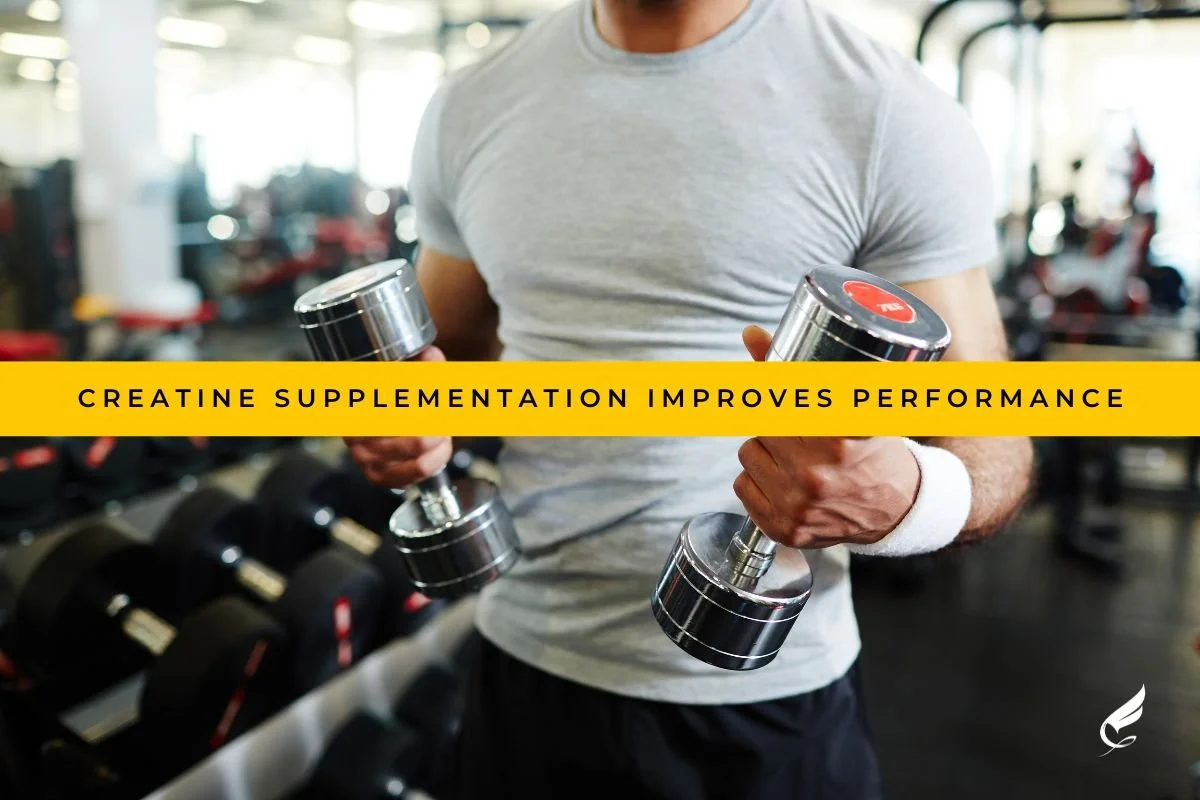Best Creatine for Sensitive Stomachs: Say Goodbye to Bloating
Using creatine to support your workouts is a no-brainer. It is one of the most studied supplements out there, and unlike many other supplements with questionable data, it has been proven to work. It is fantastic for boosting muscle power and strength, and some data also shows positive effects on brain function. However, if you have a sensitive stomach, you could experience bloating and discomfort from using creatine, specifically creatine monohydrate! I advise you not to give up, as there are some solutions you could test! This blog will explore why creatine can upset your stomach and what types might be easier to digest!
Why Does Creatine Cause Stomach Issues?
The Culprit: Pure Creatine Monohydrate: Creatine monohydrate is the cheapest yet probably the most efficient type of creatine readily available everywhere. But if you have stomach issues, it might be the worst type of creatine supplement for you!
Why does creatine monohydrate cause stomach issues: Creatine monohydrate has low solubility, meaning it needs lots of water to dissolve, sometimes leading to bloating, gas, and cramps.
Dosage Matters: Large "loading" doses often worsen these side effects.
Creatine Alternatives for Sensitive Stomachs
Creatine HCL to the Rescue: Creatine Hydrochloride provides excellent solubility and needs less water for absorption. Studies show that it is much easier on sensitive stomachs.
Micronized Creatine Monohydrate Worth a Try: Smaller particles dissolve better than standard monohydrate, potentially minimizing side effects.
Buffered Creatine (e.g., Kre-Alkalyn), Mixed Results: Designed to be less acidic, it helps some people, but not everyone notices a big difference compared to monohydrate.
Beyond the Type: Smart Strategies to Avoid Discomfort
Baby Steps: Start with a low creatine dose (~3g daily), whatever type you choose. Gradually increase as tolerated.
When to Take It: Experiment! Try taking creatine with a meal for better absorption or on an empty stomach if that works better for you.
Water is Your Friend: Stay well-hydrated throughout the day to support your system.
Finding Your Perfect Creatine Match
The best creatine for a sensitive stomach is the one that works for YOU. Consider starting with a smaller dose of Creatine HCL or micronized creatine. If those don't help enough, buffered versions might be worth a shot.
Important: Consult your doctor before starting creatine, especially if you have any existing health conditions.
More About The Benefits Of Creatine Supplements
Think of creatine as a unique fuel tank for your muscles. It helps recovery and muscle growth, aiding in athletic performance. Your body naturally produces creatine, but supplements can help you top up those stores. Here's the basic idea:
Your muscles use quick bursts of energy called ATP (adenosine triphosphate) to power through workouts.
Creatine works with another molecule, phosphocreatine (PCr), to act like a supercharger for ATP.
When your muscles need a quick energy top-up, PCr donates its phosphate group to ADP, turning it back into ATP and keeping you going strong.
This efficient system is why creatine benefits activities with short bursts of intense effort, like weightlifting or sprinting. It's not a magic bullet, but it can help your muscles fire on all cylinders during those challenging workouts.
When Is The Best Time To Consume Your Creatine Supplement?
Pre or Post-Workout? The Debate Continues!
While research isn't entirely conclusive, some studies suggest taking creatine around your workout (pre or post) might be slightly more beneficial for maximizing PCr levels compared to taking it at other times. This could potentially lead to a small edge in muscle building or exercise performance.
Convenience Matters:
The truth is, total daily creatine intake seems to be more important than the exact timing. As long as you consume your creatine consistently, your muscles will eventually reach saturation and experience the benefits. So, if remembering a pre or post-workout dose is challenging, taking it at a consistent time throughout the day (with or without meals) is perfectly fine.
Creatine Synergy: Post-Workout Considerations
Many lifters combine creatine with a post-workout meal or protein shake containing carbohydrates and amino acids. This can further support your objective to increase muscle mass and improve recovery. The additional carbs and protein help shuttle creatine into your muscles and provide the building blocks for lean muscle tissue.
The Takeaway:
Focus on incorporating creatine daily into your routine. Whether you take it before or after a workout is less crucial than consistency. If you prefer a post-workout strategy, consider combining it with your protein shake to maximize muscle-building potential.
Debunking Common Myths Related to Creatine Supplements
Myth #1: Creatine Makes Me Bulky
Creatine does not magically turn you into a bodybuilder. While it can help with muscle growth, it's a gradual process that requires proper training and diet. The weight gain associated with creatine is mainly due to increased intracellular water, which hydrates muscle cells and makes them appear fuller. This is not fat gain and won't make you bulky, but it will help you build lean muscle mass and achieve a chiseled physique!
Myth #2: Creatine Supplement Causes Hair Loss
There's no scientific evidence to support this claim. Hair loss associated with creatine is extremely rare and not specific to men or women. In fact, some studies suggest creatine might even benefit hair growth!
Myth #3: Creatine Can Damage My Kidneys
You might have heard whispers that taking creatine daily, especially creatine powder, can harm your kidneys. This is a persistent myth, but it's largely unfounded for healthy individuals. Here's the truth:
Creatinine: The Misunderstood Marker: Creatine naturally gets converted into creatinine in your body. Creatinine is a waste product that your kidneys filter out. So, when you take creatine supplements, your creatinine levels can temporarily increase. This sometimes leads to misinterpretations on kidney health tests.
Science Says It's Safe: Extensive research demonstrates that creatine, when taken at recommended doses, does not cause kidney damage in people with healthy kidneys.
A Word of Caution: If you have pre-existing kidney problems, it's crucial to consult your doctor before starting any dietary supplements, including creatine.
Bottom Line: Creatine is a safe and well-studied supplement for most people. Don't let the myths scare you away from potentially boosting your fitness results!
Conclusion
Don't let stomach sensitivity prevent you from experiencing the power of creatine. With a little knowledge and experimentation, you can find the best creatine to help you reach your fitness goals without discomfort.







